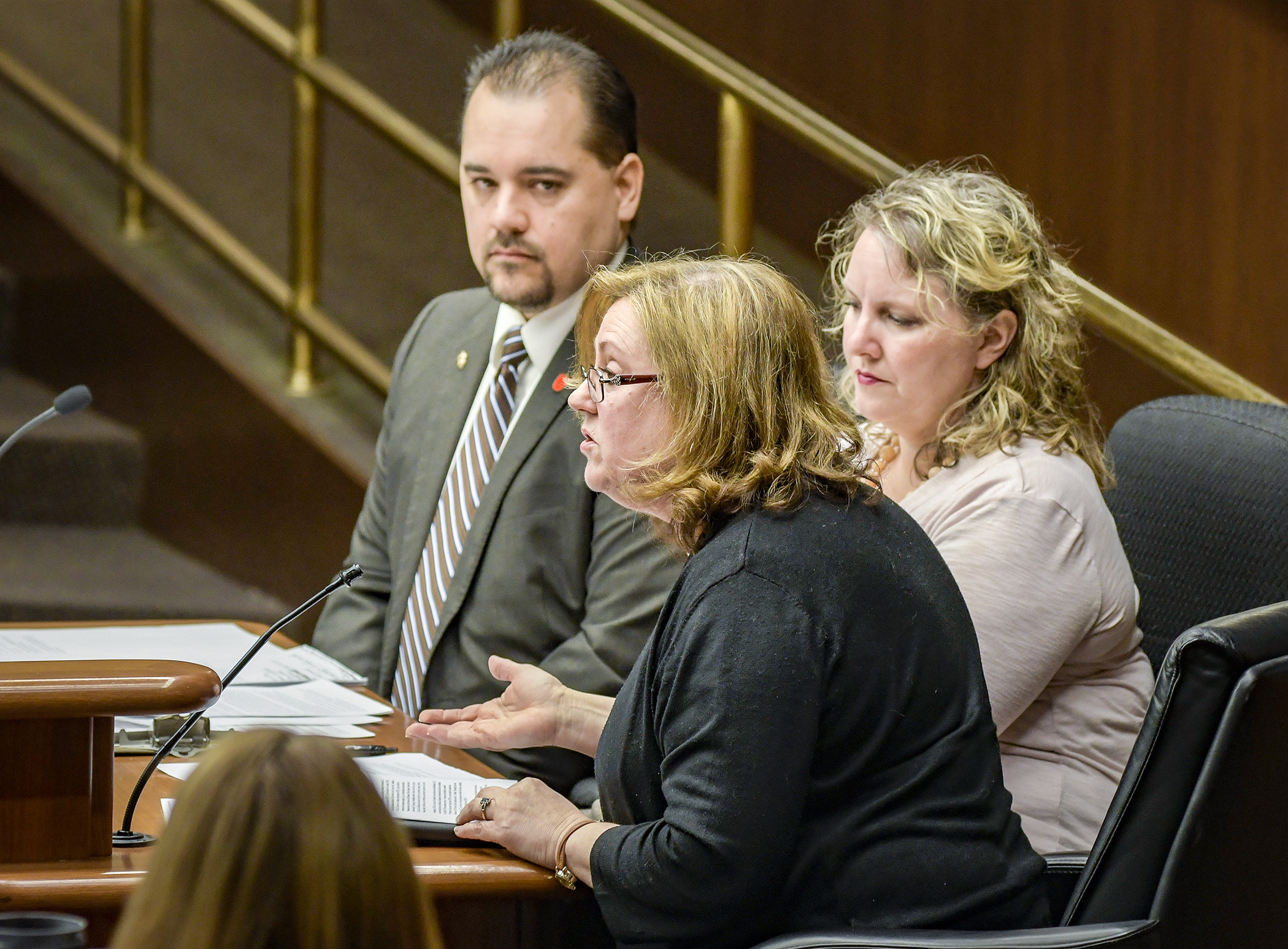Years in the making, student technology privacy proposal moves forward

Students today use technology in nearly every facet of their education, but behind that technology — through surveys, applications and devices — is a scrupulous amount of data collection that parents and civil liberties groups believe need added protection under Minnesota law.
Rep. Eric Lucero (R-Dayton) sponsors HF1507, as amended, which would create new student data privacy protections within the Minnesota Government Data Practices Act, along with expanding protections that technology providers collect about students. The bill would carve out new student privacy rights and would require a paper trail that shows who has accessed student data.
After years of shaping and tweaking the measure, including a hearing last session and a special review in October, the House Civil Law and Data Practices Policy Committee approved the bill on a voice vote, sending it to the House Education Innovation Policy Committee. Its companion, SF1961, sponsored by Sen. Eric Pratt (R-Prior Lake), awaits action by the Senate E-12 Policy Committee.
“We have a fiduciary responsibility as technology providers, as school districts, as parents, to ensure that we are offering the highest education possible with as many of the capabilities and technological innovations as possible, while at the same time protecting student data privacy in the process,” Lucero said.
While groups like the American Civil Liberties Union of Minnesota and Minnesota Advocates and Champions for Children voiced support for the proposal, others have concerns it could pigeonhole technological advances. What works now might not work in two years for the rapidly evolving technology field.
“What’s best practices now may not be best practices in two years,” Alexi Madon, director of state government affairs-Midwest for CompTIA, a tech trade organization, said about the audit trail section of the bill. “They may come up with something new and exciting that can better authenticate who’s using the data and when. What we as CompTIA, as a national trade association try to do, is make sure that legislation that passes is technology-neutral, so that it does allow for innovation, so that it does allow for new best practices come to light.”
Chris Daniels, a father and board member of MACC, said the Department of Education shares student data with 35-40 technology partners each year but hasn’t been audited. The bill, he said, would prevent companies from sharing or selling the data.
“Our children’s data should never be fodder for profit,” Daniels said.
Related Articles
Search Session Daily
Advanced Search OptionsPriority Dailies
Stable budget outlook projects $3.7 billion surplus now, no deficit in next biennium
By Lisa Kaczke The projected surplus for Fiscal Years 2026-27 is now higher than it was in the November estimate, and no deficit is projected for the next biennium.
“Minnesota’s budge...
The projected surplus for Fiscal Years 2026-27 is now higher than it was in the November estimate, and no deficit is projected for the next biennium.
“Minnesota’s budge...
Legislative leaders set 2026 committee deadlines
By Lisa Kaczke Legislative leaders on Tuesday officially set the timeline for getting bills through the committee process during the upcoming 2026 session.
Here are the three deadlines for...
Legislative leaders on Tuesday officially set the timeline for getting bills through the committee process during the upcoming 2026 session.
Here are the three deadlines for...